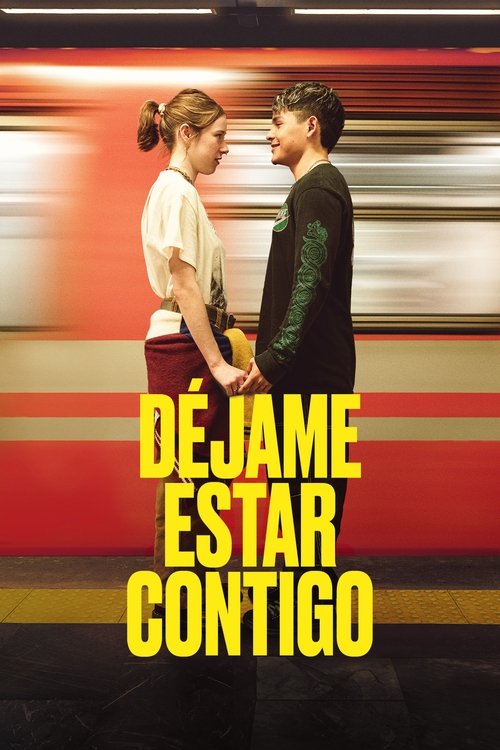Déjame Estar Contigo

Plot
Déjame Estar Contigo, which translates to "Let Me Stay with You" in English, is a heart-wrenching Mexican drama film that portrays a poignant and uplifting tale of two individuals, each struggling with their own unique set of challenges. The movie is set amidst the vibrant backdrop of Mexico City, where the complexities of life have conspired to bring its protagonists together in a transformative journey of the human spirit. Lucía, played by Xénoa, is a young woman afflicted with an incurable disease that has ravaged her body, leaving her frail and vulnerable. Despite her weakened physical state, Lucía exudes a fierce determination and an unyielding spirit that is an inspiration to those around her. Her life has become a constant struggle, as she fights to maintain a semblance of normalcy amidst the unrelenting symptoms of her illness. On the other hand, we encounter Bruno, played by Manolo Cardona, a young man adrift in a world that seems to have lost its purpose. A product of the tumultuous waves of migration, Bruno was once a part of a vibrant family in Mexico before fate saw fit to deport him to a foreign land. Without a place to call his own or anyone to support him, Bruno grapples to find solace in the city's streets, searching for a sense of belonging that seems increasingly elusive. One morning, an unexpected phone call sets the stage for the unfolding events of the movie. Bruno receives a call from an unknown number, informing him that a relative has passed away, leaving behind a small apartment in the city's outskirts. Despite initial reservations, Bruno sets out to claim his inheritance, unaware of the chain of events that this simple gesture is about to trigger. Upon arriving at the apartment, Bruno meets Lucía, who has been living incognito in the deceased's residence, trying to escape the world beyond the confines of her terminal illness. Initially wary of each other, the two individuals begin a tentative dance of discovery, learning to acknowledge their presence in each other's lives as they navigate the complexities of their cohabitation. As the days turn into weeks, a beautiful friendship blossoms between Lucía and Bruno, built on mutual trust, respect, and a deep empathy that transcends the boundaries of their disparate realities. They learn to depend on each other, adapting to the peculiar rhythms of their adopted life, as Lucía's disease dictates the ebb and flow of their daily routine. Though the road ahead appears daunting, Lucía's presence in Bruno's life becomes a source of inspiration and hope. With her unwavering optimism and resilience in the face of adversity, she stirs something deep within Bruno, encouraging him to re-examine his own place in the world and seek out a new purpose, one that is rooted in meaning and authenticity. Conversely, Bruno becomes a source of comfort for Lucía, shielding her from the outside world and its many cruelties. As they grow closer, he instills in her a sense of normalcy, reminding her that life is precious, and that every moment, no matter how fleeting, deserves to be cherished. Throughout their journey, the camera captures the dramatic juxtaposition of life and death, of hope and despair, as the narrative weaves a poignant tapestry that defies simplistic binary categories. In an intricate dance of vulnerability and protection, Lucía and Bruno learn to complement each other's fragility and strength, forming an unlikely yet indispensable bond that acts as a beacon in the darkness. What evolves from this unlikely union is a testament to human resilience, as two damaged souls learn to find meaning in the fragments of their existence. With the city's rhythm serving as a poignant backdrop, the movie exudes a mood that is both tragic and life-affirming, an insistent reminder that love, hope, and redemption are not just abstract ideals but tangible, beating realities that can be experienced in the unlikeliest of places. The movie ends on a poignant note, with Lucía still holding onto her fragile life, but her eyes aglow with an unquenchable spark that serves as a poignant tribute to her indomitable spirit. In that fleeting moment, it becomes clear that for Lucía and Bruno, their encounter has been, in fact, more than a mere transitory distraction - it has been a lifelong awakening that transcends the boundaries of disease, deportation, and mortality.
Reviews
Recommendations




